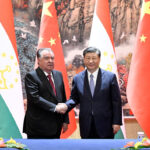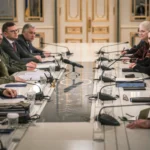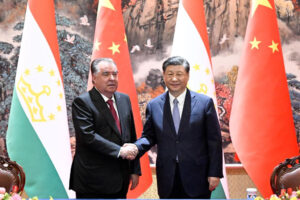UN Women, local organizations, and the Colombian government have been working together to ensure that women’s rights and voices are at the center of a lasting peace in the country. The reconciliatory and pacifist commitments of more than 1,000 Colombian women have been collected into a national action plan, which seeks to guarantee women’s human rights within the framework of the United Nations’ women, peace, and security resolution.
The plan “has been constructed in a participatory manner with Colombian women from all territories and in all their diversity”, said Beatriz Quintero, a member of the National Women’s Network, a local women’s rights group.
She said the plan was the result of “a constant, persistent, and insistent work of the women’s movement in Colombia to show the importance of the women, peace, and security agenda in the country”.
It has been 23 years since the United Nations Security Council approved resolution 1325, calling for women to play a central role in peacebuilding.
UN Women hopes that Colombia’s plan can become a model for the world, and has accompanied the government, donors, and 27 local organizations throughout its preparations. UN Women is now working with the government to translate all these inputs into an actionable roadmap.
Information gathered to create the plan covers everything from preventing sexual violence in armed conflict to confronting social tolerance for gender-based violence, and also specifically seeks to establish security measures to protect women human rights defenders and peacebuilders.
In Colombia, the women’s movement and feminist organizations have been a powerful and organized force in the public debate over the country’s conflict. That efforts make it possible for women to be at the centre of the peace and reconciliation process.
“We want this Action Plan to be a milestone for women in Colombia”, said Ana Feliza Rivas, member of the Palmira municipal women’s confluence, a local women’s group. “We’ve been working on this for a long time. We want to see results. And for this to happen we want it to not be just another document.”
The plan can be “a strategy that gives us guarantees for the consolidation of peace”, she said. “To all the women who have participated in this process, I say: it is okay to dream, but above all, we have the right for those dreams to become reality.”
The United Nations country team and the Organization of American States’ Mission to Support the Peace Process, with UN Women as the lead facilitator, have provided methodological and logistical support to several regional and local forums involving 800 women and LGBTQI+ persons, including former Revolutionary Armed Forces of Colombia members, in the participatory roadmap for the national action plan.
The coordination of the plan’s development and adoption is led by the Ministry of Foreign Relations and the Presidential Counsellor for Women’s Equality, and 23 women’s organizations and platforms are part of the mechanism of dialogue between government and civil society.
Several countries (Norway, Sweden, the United States, the United Kingdom, Ireland, and Canada) are funding these efforts, which are being supported by the International Cooperation Gender Table.
Source: Relief Web
















